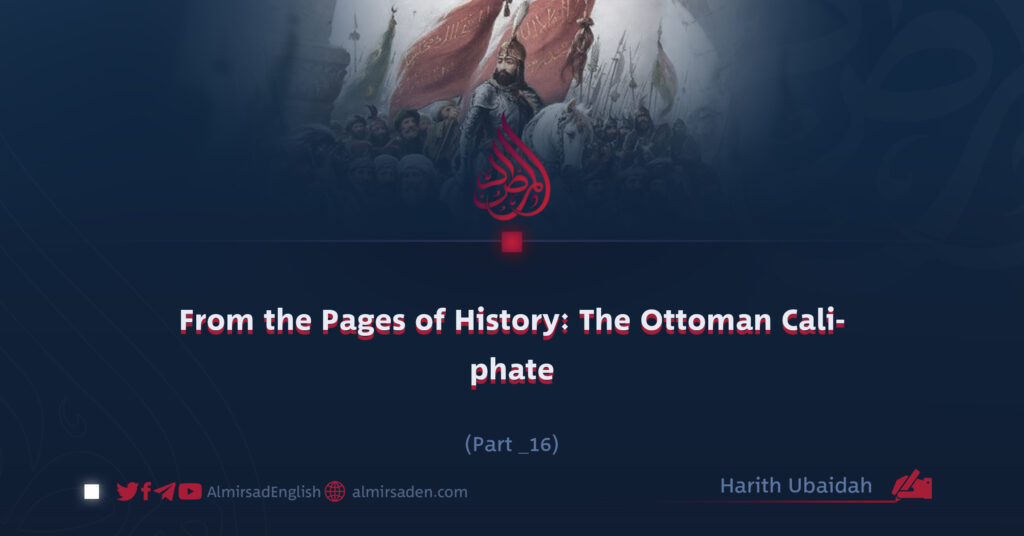Part 16
Author: Harith Ubaidah
The First Treaty Between the Ottoman Empire and the Christians
The growing might of the Ottoman Empire struck fear into the hearts of surrounding nations, particularly those weakened by internal strife or lacking in military power. Among these, the Republic of Ragusa—upon its formation—took swift action to secure its position. Recognizing the strength and influence of Sultan Murad, it dispatched a diplomatic mission to the Sultan Murad I, proposing a treaty of friendship.
This diplomatic initiative culminated in the establishment of formal trade relations between the two states. As part of the agreement, the Republic of Ragusa pledged to pay an annual tribute of 500 gold ducats—its national currency. This treaty marked a significant milestone as the first formal accord between the Ottoman Empire and a Christian state, laying the groundwork for future diplomatic engagements between the Muslim and Christian worlds.
The Battle of Kosovo
In a departure from conventional practice, Sultan Murad chose not to rely solely on his commanders but personally led his army deep into the Balkan Peninsula. This bold move raised alarm among the Serbs, who saw an opportunity to take advantage of the Sultan’s direct presence in Europe. They launched several attacks on the advancing Ottoman forces but failed to achieve any meaningful success.
Recognizing their inability to defeat the Ottomans independently, the Serbs and Bosnians forged an alliance with the Bulgarians, assembling a powerful European Crusader army with the aim of halting Ottoman expansion.
Anticipating the threat, Sultan Murad mobilized his fully prepared troops and marched to the Kosovo region, where the decisive confrontation would take place. It is narrated that, prior to the battle, one of the Sultan’s trusted viziers carried with him a copy of the Noble Qur’an. As he opened it, his eyes involuntarily fell upon the following verse:
يأَيُّهَا النَّبِيُّ حَرْضِ الْمُؤْمِنِينَ عَلَى الْقِتَالِ إِنْ يَكُنْ مِّنْكُمْ عِشْرُونَ صَبِرُونَ يَغْلِبُوْا مِائَتَيْنِ وَإِنْ يكُن مِّنْكُمْ مَّائَةً تَغْلِبُوا أَلْفً مِّنَ الَّذِينَ كَفَرُوا بِأَنَّهُمْ قَوْمٌ لَّا يَفْقَهُونَ ] (الانفال (65)
“O Prophet, urge the believers to battle. If there are among you twenty [who are] steadfast, they will overcome two hundred. And if there are among you one hundred, they will overcome a thousand of those who have disbelieved because they are a people who do not understand.”
(Surah Al-Anfal, 8:65)
The vizier took this as a divine sign and a harbinger of victory. Inspired by this moment, the morale of the Muslim forces soared. The opposing forces soon faced one another on the battlefield. After a brief delay, the engagement began and quickly escalated into a fierce and bloody conflict. In the end, the Ottomans emerged victorious, achieving a decisive and unambiguous triumph over the Crusader forces.
The Martyrdom of Sultan Murad I
Following the triumph at Kosovo, Sultan Murad toured the battlefield to assess the aftermath. He moved solemnly among the ranks of the fallen, offering prayers for the martyrs and giving orders for the care of the wounded.
In the midst of this compassionate inspection, a Serb soldier—who had feigned death and hidden among the corpses—suddenly leapt up and charged toward the Sultan. The royal guards quickly apprehended him, but the man claimed he wished to convert to Islam at the Sultan’s hand and requested an audience. Trusting his sincerity, Sultan Murad motioned for the guards to release him.
As the man approached, he pretended to kiss the Sultan’s hand. In an act of treachery, he drew a concealed dagger and fatally stabbed the Sultan. Thus, Sultan Murad attained the noble rank of martyrdom on the 15th of Sha’ban, in the year 792 AH (1390 CE), sealing his legacy with the highest honor in the path of Allah.
The Final Words of Sultan Murad I
“I have only enough time to express my gratitude to Allah, the All-Knowing, who hears the unspoken and accepts the prayer of this humble servant. I bear witness that there is no deity worthy of worship but Allah, and all praise and thanks belong to Him alone. My final hour has come. I have seen with my own eyes the victories of the Islamic armies. Follow my son, Bayezid. Do not oppress or humiliate the prisoners. I entrust you all to the care of Allah. I commit this great and victorious army to His divine mercy—He alone will protect our empire from every harm.”
With these noble and heartfelt words, Sultan Murad I surrendered his soul to his Lord at the age of sixty-five, leaving behind a legacy of piety, justice, and unshakable devotion to Islam.
